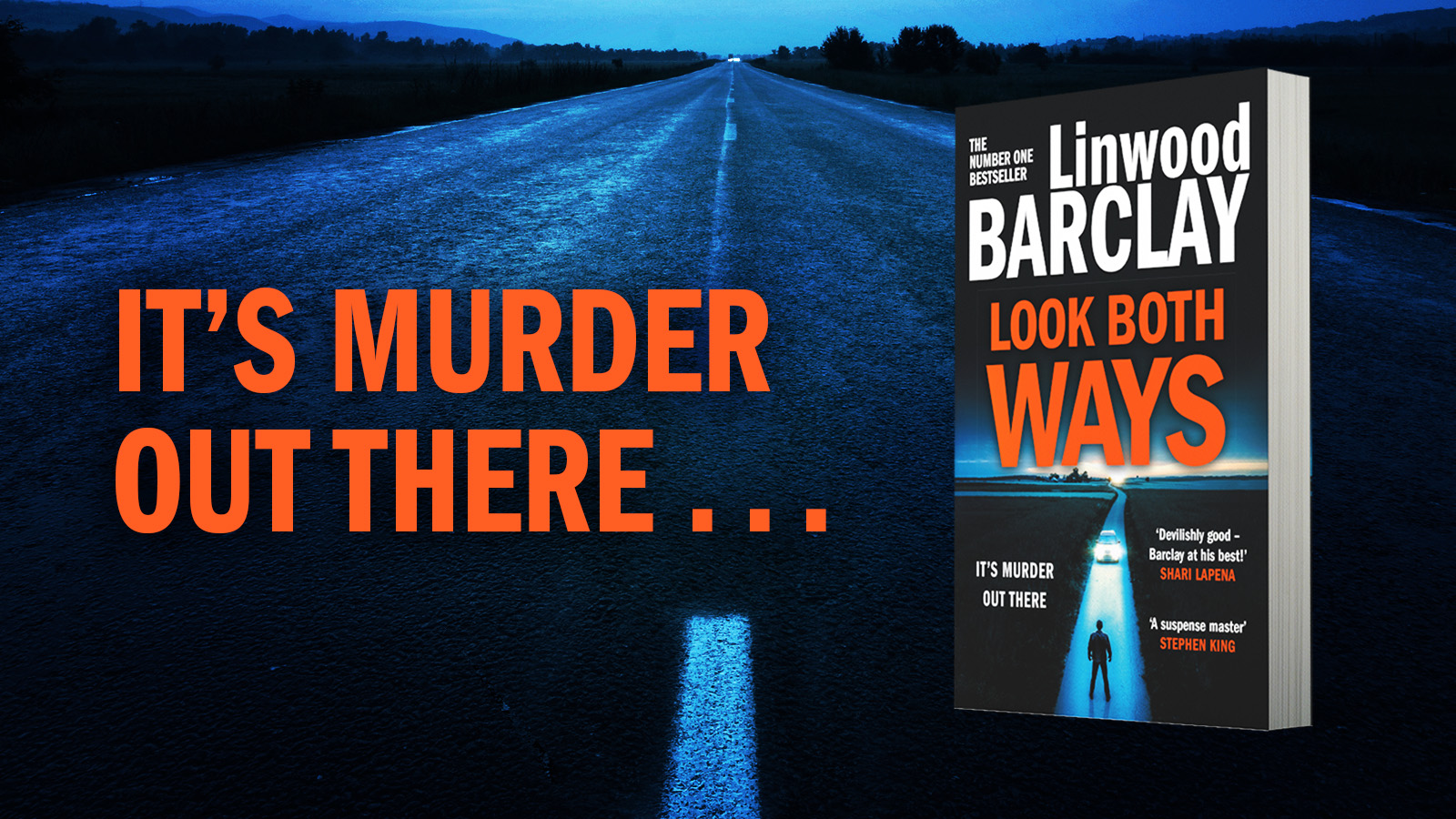Read the exclusive early third chapter of The Lie Maker by Sunday Times bestselling author, Linwood Barclay.
THREE
The dog was at the door, whining and scratching. “Jesus Christ, didn’t we just go out?” asked Willard Bentley. Only moments earlier, he’d settled into the overstuffed leather chair in his study with his evening brandy, about to resume reading A Tale of Two Cities. Bentley had promised himself that when he retired, he would take his wife, Audrey, on a round-the-world trip, and finally get to reading some of the classics he’d always intended to conquer but never managed to. For the trip, he’d bought one of those devices you could download books into so he wouldn’t have to lug a bunch of heavy tomes from country to country.
But that trip never happened. The flights had all been arranged, the hotels booked, new luggage purchased. They were going to stay a week in each location, starting in London, then on to Paris, then Mumbai, followed by Hong Kong, Sydney, Christchurch, Hawaii, and then back home to Boston.
A week before their planned departure, Audrey got sick. Audrey did not get better. Around the time they would have been in Hong Kong, she was gone.
There was a period of mourning, of course, during which Willard found he could not focus on the printed word. It wasn’t just Dickens he couldn’t tackle. It was his daily newspaper. He could barely take in the headlines.
One day, his daughter and son-in-law showed up with a surprise by the name of Oliver, a feisty terrier pup who took no time at all to win Willard over, despite the man’s protests that he wasn’t up to looking after a dog. But it was Oliver who got him up and moving several times a day, going about the neighborhood to do his business.
(Oliver was not, by the way, named for Dickens’s Oliver Twist, but for Oliver Wendell Holmes Jr., the onetime Supreme Court justice who had also served two decades as a justice on the Supreme Judicial Court of Massachusetts. Willard had always been a fan, and his daughter knew it.)
Willard credited Oliver with dragging him out of his doldrums and allowing him to resume his interests. He’d plowed through the works of Charles Dickens in the order in which they were published—actual hold-in-your-hand books now, since he wasn’t going to be traveling—which meant starting with 1837’s The Pickwick Papers. But there were eighteen works between that one and A Tale of Two Cities, published in 1859, and it had taken him only nine months to get through them.
It had been worth the wait. That first sentence resonated as strongly today as it had when Dickens had written it.
It was the best of times, it was the worst of times.
No shit, Willard thought.
What a world he was living in. Technological advances beyond anyone’s imagining. A wired, connected world. Ordinary citizens able to buy tickets for trips to space. Homes that could be made from 3-D printers. And yet, at the same time, widespread belief in baseless conspiracy theories. Rejection of cures to serious health threats because some brain-dead radio host railed against them. The human race ran the gamut from unparalleled genius to total idiocy.
And yet, weren’t people still basically good? The ones who misbehaved got all the attention, but there were small acts of kindness happening all the time, like when his next-door neighbors, Sylvia and Martin, came by unexpectedly the other day with a bag of three croissants, still hot from the bakery. Didn’t that make it the best of times?
Oliver whined again.
As much as Willard hated to have to put his book aside and take Oliver for a walk around the block, having to clean up one of his messes from the carpet was even more objectionable.
“Okay, okay,” he said. He felt his hips whimper in pain as he stood. He always had to take a few steps to get his joints operating smoothly.
He went to the front hall, found a light jacket in the closet and slipped it on, then snapped the lead that was hanging from the front door onto Oliver’s collar. Willard grabbed the house keys, opened the door, and, once out on the front step, locked up. Oliver strained at the leash, desperate to begin his sniffing of the neighborhood.
A young woman emerging from the Beacon Hill residence next to Willard’s glanced his way and waved. It was Sylvia, a backpack slung over her shoulder.
“Evening, Judge!” she called out.
They all still called him that, even though he hadn’t presided over a case in years. He smiled and gave a half-hearted wave in return. “Hello, Sylvia,” he said. “Off to the gym?”
“Gotta stay in shape to keep up with you,” she said, springing down the few steps to the sidewalk. “Hey, there, Oliver! How’s it going?”
Oliver was too busy sniffing a wet mark on the curb to respond. As Sylvia waved a second time and walked briskly up the street, Willard noticed that there weren’t too many people out and about tonight.
That was fine. That meant he wasn’t going to run into anyone he knew, wouldn’t feel obliged to make small talk. Chitchat exhausted Willard. He wanted Oliver to do his business so he could get back to his reading and his brandy.
Oliver picked up the pace, trotting his way down the sidewalk, the leash taut. He had forgone sniffing every fence post and fire hydrant, and appeared to be on a mission. Maybe he had picked up some faraway scent that demanded investigating.
As they were passing a dark gap between houses, Willard heard something. A scuffle, a trash can being knocked over.
Rats, he thought. No, a raccoon, maybe. A rat couldn’t make that much noise.
But then a voice. Someone whimpering. Willard couldn’t tell whether it was a man or a woman. He stopped, listened, Oliver still straining at the lead, wanting to move forward.
It occurred to Willard at that moment that he had left the house without his cell phone. If someone was hurt, and if that person did not have a phone, Willard would have to start knocking on doors to summon assistance.
“Hello?” he said, standing at the mouth of the alley. Shadows, snatches of light. The old man squinted, trying to see into the darkness more clearly. He thought he could make out a shape, someone struggling to stand.
“Judge, is that you?”
A man’s voice. And clearly, someone who recognized him. Maybe one of his neighbors.
“Yes, yes,” Willard said. “Who is it?”
“I’m hurt,” the man said weakly. The retired judge could see someone raising an arm to the wall, supporting himself.
Willard entered the alley, pulling Oliver along with him.
“What’s wrong? Who is it? Are you injured?”
Willard took several more steps into the alley, until he was close enough to make out the face of the person who had called out to him.
“Do I—do I know you?” Willard asked as the man took his hand off the wall, and Willard saw that it had been holding something. Something that looked like a club, like a short baseball bat.
“Someone would like to have a word with you,” the man said before bringing the club down.
Moments later, Oliver came wandering out of the alley, not quite sure what to do or where to go, dragging his leash behind him, feeling, as much as a dog is able to, that it was the worst of times.
The Lie Maker by Linwood Barclay is out on the 31st of August.





